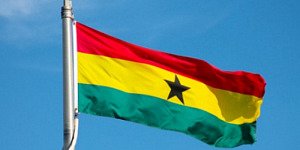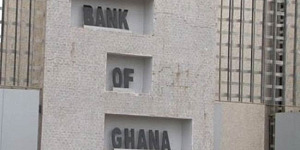Ghana's central bank cut its policy rate by 50 basis points to 25.50 percent, saying the downside risks to economic growth now outweighed the risks of high inflation.
It is the first change in policy by the Bank of Ghana (BOG) since the last rate hike in November 2015 and the first rate cut since July 2011.
Between February 2012 and November last year the central bank raised its policy rate by 13.50 percentage points as it sought to curb inflation and depreciation of the cedi's exchange rate.
But Ghana's inflation rate has trended downward since hitting 19.2 percent in March and eased to 15.8 percent in October from 17.2 percent in September due to lower non-food inflation.
"Policy tightness and continued stability of the exchange rate largely accounted for the declining trends," the bank said, describing the inflation outlook as "positive."
The central bank added that it expects inflation to return to its medium-term target band in 2017, supported by continued tight monetary policy and stability in the exchange rate. The central bank targets inflation of 8.0 percent, plus/minus 2 percentage points.
The cedi started to slowly depreciate in 2013 and fell faster in 2014 and most of 2015. But since October 2015 the exchange rate has been less volatile and depreciated 4.3 percent against the U.S. dollar between January and October compared with a fall of 15.5 percent in the same 2015 period.
Today the cedi was trading at 4.07 to the dollar, down from 3.82 at the start of the year for a decline of 6.1 percent.
"The outlook for the exchange rate remains positive and the Committee is optimistic that the cedi stability would be sustained," the bank said.
But Ghana's economic growth remains "weak and below trend," the bank said, due to weak global demand, lower commodity prices, disruptions in the production of oil and gas, and weak private sector credit growth due to the central bank's tight policy and fiscal consolidation.
"These tight conditions are expected to prevail in the outlook," the bank said.
Ghana's Gross Domestic Product grew by an annual rate of 2.5 percent in the second quarter of this year, down from 4.8 percent in the first quarter.
In September the International Monetary Fund (IMF) approved a disbursement of US$116.2 million to Ghana as part of 3-year arrangement agreed in 2015 that aimed to restore debt sustainability and macroeconomic stability to help the country's economy.
The IMF called on the central bank to maintain a tight policy stance to help bring inflation back to its target and although there have been some improvements to central bank governance, it welcomed further amendments so there is zero central bank financing of government finances.
The IMF added that Ghana had made progress in stabilizing the macroeconomy and reducing fiscal imbalances but there are still risks and called on further efforts to address revenue shortfalls while spending should be fully controlled to contain wages and other spending.
"The government is projected to run a primary surplus this year, which, along with the stability of the cedi, should contribute to a marked decline in the debt-to-GDP ratio," the IMF said.







































